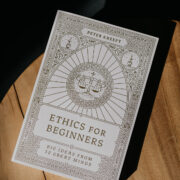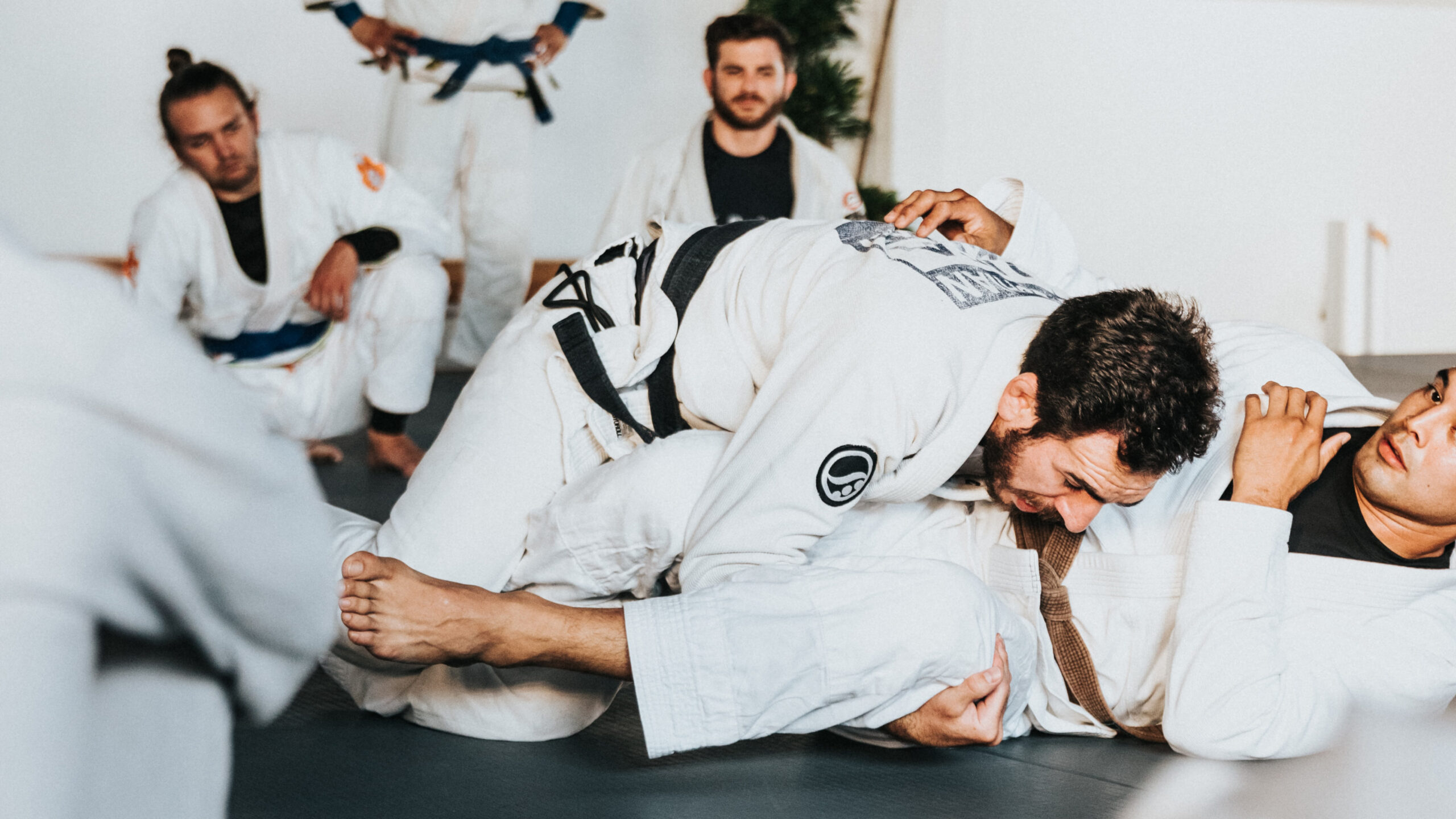Since starting jiu-jitsu, I have spent most Monday and Wednesday nights getting choked out on a sweaty mat in the back of an old gym in downtown Chicago. Now, that may seem like an absurd way to spend free time, but for me, it has become something I look forward to every week. After training for over a year (with some breaks due to injury), I have learned many hard lessons on the mat. These lessons learned in the first few years of training jiu-jitsu are often referred to as “white belt lessons.” All beginners, or “white belts,” have had to undergo the growing pains of learning these lessons—there is no shortcut to mastery.
These years of trial and error are known for their difficulty and many white belts tap out of jiu-jitsu, quitting out of frustration and discouragement. I was no outlier to this trend. Although I did not quit, the frustration culminated after months of slow progress and wishing I was further along than I was. Many lessons were learned throughout the year—some easy, some excruciatingly difficult.
Of the many white belt lessons I learned during this period, one, in particular, became the antidote to my frustration. It became clear that in order to progress in jiu-jitsu, my ego would need to take a hit. All too commonly, white belts start jiu-jitsu with a slightly inflated ego, thinking that their strength and intuition will quickly move them up the ranks. It takes very little time for this idea to be crushed. At the moment of this realization, they either quit with a bruised ego in tow or take themselves down a few pegs and go back to work on the mat. For those that continue forward, their mindset surrounding the entire experience changes. Times getting smashed by an opponent into the mat become laughable instead of embarrassing. Times getting choked out become learning moments rather than sources of tantrums. Times spent wondering how you could hold your own with the majority of the room turn into times wondering if you can hold your own with just a single person in the room. As subtle as these shifts in mindset may be, these are the turning points in a white belt’s journey. These transitions may not change belt colors, but they are the first step toward success.
It is precisely when we fully understand our littleness that we find the key to unlocking true humility and even sanctity.
Oftentimes, jiu-jitsu is thought of as a crass practice due to its violent perception by the general public. Because of this reputation, the world may assume nothing comes from it other than knuckle-draggers. However, I argue there is something that the world can learn from even a white belt.
Just like a white belt starting out in jiu-jitsu, we are living in a world that is in desperate need of an antidote to ego. Whether it be online or in person, we have a tendency to look out for ourselves above all others, posture ourselves above them, and see ourselves favorably in comparison. This is especially true if the person belongs to a group in opposition to our personal beliefs. It takes mere seconds of scrolling on Twitter to find a user posturing against another out of their inflated perception of their own virtue and goodness. And the examples don’t stop there; our news anchors, athletes, and politicians find themselves entangled in the same problem. And while it may feel as though this is a problem of the modern world, it is not all that modern. It is the same issue that humanity has faced for thousands of years. Look no further than the cowardly actions of Pilate during the trial of Jesus in which he not only does as the mob wishes out of fear of their perception of him, but also “washes” his hands clean of Jesus’ blood. This is an issue deeply rooted in human nature, even back to the choices of Adam and Eve in the garden.
Yet however many historical examples there seem to be, does it not seem like it has become worse? With new forms of communication and the rise of television and social media, we are faced with a much different problem than humanity has ever faced. We no longer have private reputations to maintain among those in our community, but are now responsible for maintaining and managing our image and reputation globally as users from the other side of the world can quickly access our thoughts and ideas. One post slightly out of line with their beliefs, and you’ll be sure to regret those 280 characters. This naturally leads to a disordered ego. We no longer act without thinking about how this will be perceived by our peers. Instead, we jump into the mob mentality of outrage when an opinion contrary to ours is expressed. Knowledge has been reduced to whatever snip of information we get from our favorite celebrities’ latest posts that we take to be the truth. The temptation to participate in this egotistical mentality is ever more present now, and we must be alert if we hope to not fall into the snares of this trap.

As we search for a way to guard ourselves against this trap, we can look to the humble white belt for some wisdom. Ego is minimized in jiu-jitsu through consistent training and the experience of losing until you realize you are not as good as you thought you were. This is not an inherent thing that occurs, and some never come to this conclusion. It takes dedicated time to contemplate and reflect on your abilities before you can come to accept this reality. Maybe the same is true of life in this world. Through contemplation and reflection, we begin to recognize and focus on the brokenness in our own hearts rather assessing that of those around us. We need true humility. Unlike what the dark corners of Twitter would say, this recognition of our inadequacies is nothing to be ashamed of. Leaving Twitter behind, we can then look to what the Lord says to do with these inadequacies. St. Thérèse so beautifully recounts in her autobiography, Story of a Soul,
I concluded that God would not inspire desires which could not be realized, and that I may aspire to sanctity in spite of my littleness. For me to become great is impossible. I must bear with myself and my many imperfections; but I will seek out a means of getting to Heaven by a little way—very short and very straight, a little way that is wholly new.
It is precisely when we fully understand our littleness that we find the key to unlocking true humility and even sanctity. Peter Kreeft put it best in describing the two groups that Jesus divided the world into: “The only two kinds of people are sinners who think they are saints and saints who know they are sinners.”
Which group do we fall into? Once we know this, we can begin to find answers as to where we stand in the ego problem of the world. Like the white belt and even the great St. Thérèse of Lisieux, we may need to look our littleness more directly in the eyes before moving forward. As the white belt has unlocked the key to progressing in their journey towards the next colored belt, we unlock the key to progressing in our journey to sanctity. It is the few that change the world and from these few, we can pray the world will follow suit.
